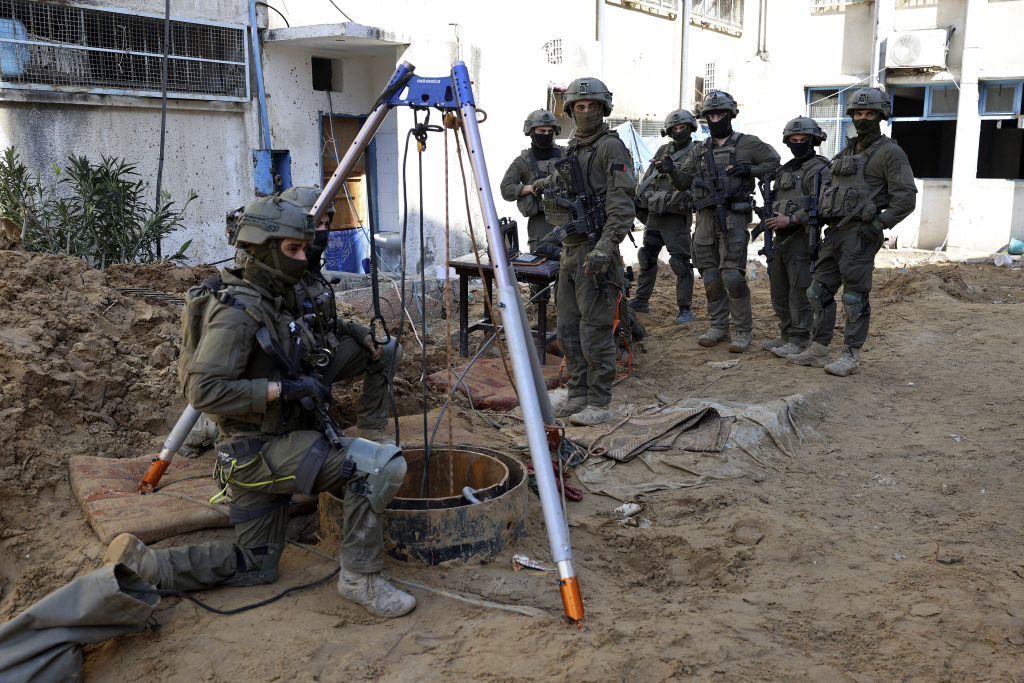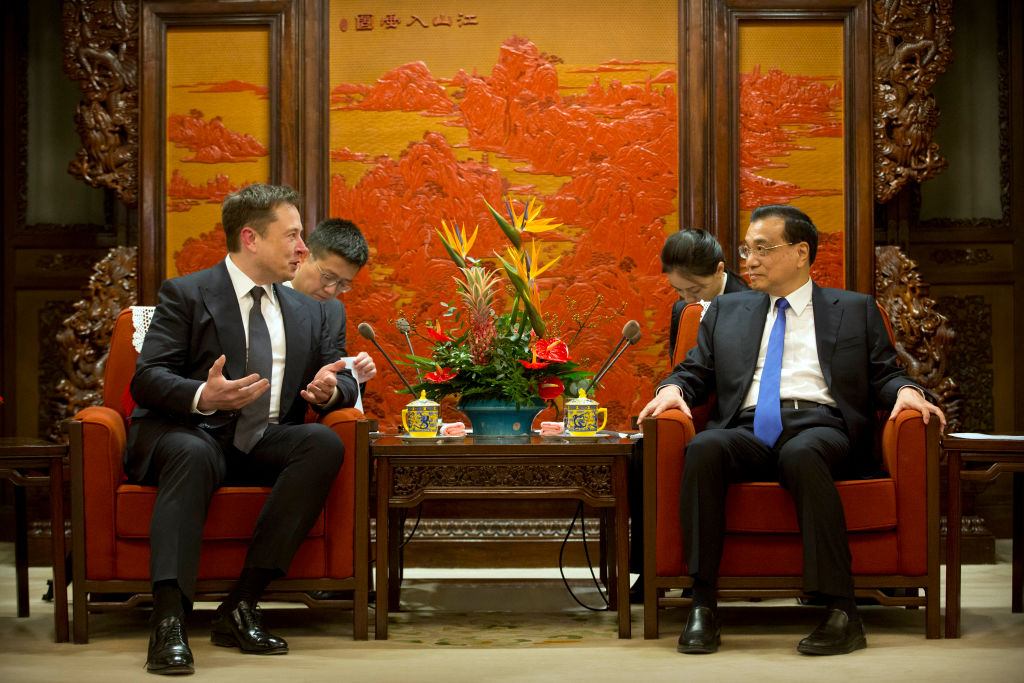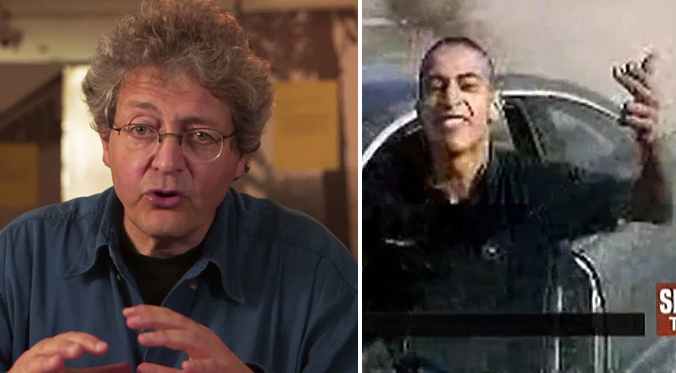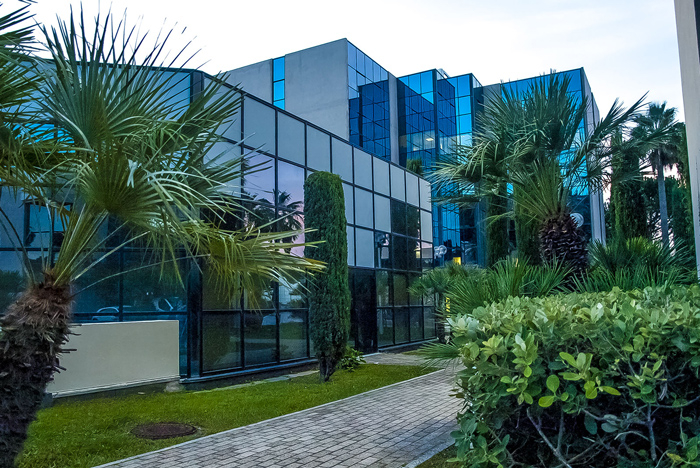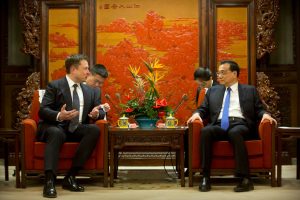The Council of State, the highest administrative court in France, decided that, to allow freedom of religion, the burkini must not be banned. At first the ruling looked sound: why should people not be able to wear what they wish when they wish? What is not visible, however, is that the harm comes later.
If someone still does not realize that the Islamic dress code is the Trojan horse of Islamist jihad, he will learn it fast.
A few recent incidents include:
September 7. In Guingamp, Brittany, a 17-year-old girl in shorts was beaten by a man who considered her outfit “too provocative”. Although the attacker escaped, so that the police have no idea who he is or what his background might be, it is a taste of things to come.
September 7. In Toulon, southern France, two families were on a bicycle path when they were insulted by a gang of 10 “youths” (the French press uses “jeunes” [youths] in order not to say Arabs or Muslims). According to the local prosecutor, the “youths” shouted at the women, “whores!” and “strip naked!” When the women’s husbands protested, the “youths” approached and a fight began. One of the husbands was found unconscious with multiple facial fractures.
At first, the motive of the attack was reported to be linked to the women wearing shorts, but in fact the women were not wearing shorts; they were wearing leggings.
July 19. In a resort in Garde-Colombe (Alps), a Moroccan man stabbed a woman and her three daughters, apparently because they were scantily dressed. One of the girls was seriously injured. The attacker, Mohamed, says that he was the “victim,” because he claims the husband of the woman he stabbed scratched his own crotch in front of Mohamed’s wife. According to the prosecutor, “the husband of the victim does not remember having made such a gesture.”
July 7. A day-camp center in Reims, eastern France, circulated a note asking parents to avoid dressing their daughters in skirts because of the improper conduct of boys aged 10 to 12. A mother published the document on Twitter and commented on Facebook: “Obviously the idea did not occur to them that it is not for little girls to adapt their dress to big creeps, but for big creeps to get educated? ”
In early June, 18-year-old Maude Vallet was threatened and spat on by a group of girls on a bus in Toulon because she was wearing shorts. She posted a photo of herself on Facebook with the caption, “Hello, I’m a slut.” The posting was shared by more than 80,000 people. The attackers were Muslim girls, but Maude, according the “politically correct” who believe “thntdwi” (this has nothing to do with Islam), did not want to reveal their ethnic origin.
April 22. Nadia, a 16-year-old girl wearing a skirt, was severely beaten in Gennevilliers, a suburb of Paris, by three girls who were apparently Muslims.

Snapshots of France’s new sharia police. Left: In Toulon, 18-year-old Maude Vallet was threatened and spat on by a group of Muslim girls on a bus, because she was wearing shorts. She posted a photo of herself on Facebook with the caption, “Hello, I’m a slut.” Right: In a resort in Garde-Colombe, a Moroccan man stabbed a woman and her three daughters on July 19, apparently because they were scantily dressed. |
These cases were dramatically publicized in all media, both official and social. Ironically, however, none of these incidents triggered the international attention and outrage that greeted a Burkini incident in Nice: A woman, apparently Muslim, was lying alone on a beach with no towel, no book, no parasol, no sunglasses, no husband (or brother, or father) to “protect” her, in the full glare of the midday sun near a police post — with a photographer nearby ready and waiting to take pictures of her surrounded by four policemen. Who alerted them? The woman was issued a fine and possibly ordered to remove some of her clothes on the beach. Pictures of the incident were first published on August 23 by the Daily Mail and within minutes went viral, provoking international indignation against these seemingly racist French people discriminating against innocent Arab women. A week later, however, the Daily Mail suggested that this incident may well have been “staged” and the “pictures may be SET UP.”
So the real question is: Are Islamists in France now using photos and videos, the way the Palestinians are doing against Israel: to film and disseminate fake and staged situations in order to provoke global indignation about supposedly poor Muslim “victims” — especially women who are allegedly “discriminated against” in France?
If fabricated propaganda is allowed to persist, the defrauders will win a big war.
“In the war that Islamism is leading with determination against civilization, women are becoming a real issue,” said Berenice Levet, author and professor of philosophy at the École Polytechnique to the daily Le Figaro.
She added:
“Rather than produce figures that say everything and nothing, I want it recognized once and for all that if today the roles of the genders are forced to regress in France, if domination and patriarchy are spreading in our country, this fact is related exclusively to our having imported Muslim values.”
Ironically, at the same moment, France’s Minister for Family, Children and Women’s Rights, Laurence Rossignol, decided to spend public money on an ad campaign against “ordinary sexism” — the supposed sexism by all French men against supposedly eternally victimized women. But there was not a word in this campaign about the possible victimization or potential outcome from the increasing proliferation of the burqa, veil or burkinis on Muslim women.
Commenting the ad campaign, Berenice Levet added:
“Laurence Rossignol should read Géraldine Smith’s book, Rue Jean-Pierre Timbaud. Une vie de famille entre barbus et bobos (“Jean-Pierre Timbaud Street: The life of a family among bearded men [Islamists] and Bohemians”). She would learn — among other things — that in some stores or bakeries, men are served first, before women.”
In this book, we can learn also that in the heart of Paris, a Muslim can insult a woman for drinking a cola in the street. But for many, including Rossignol, it seems the only enemy is the white Frenchman.
Two serious questions are at stake:
- Are sharia police emerging in France?
- Are French institutions sacrificing one freedom for another? Is the principle of equality between men and women being sacrificed to freedom of religion (Islam) to impose its diktats on French society?
Sharia Police
In France, no organized Islamist brigades patrol the streets (as in Germany or Britain) to fight alcohol consumption or to beat women for the way they are dressed. Yet gangs of “youths”, again, both men and women, are increasingly doing just that in practice. For years now, “big brothers” have been obliging their mothers and sisters to wear a veil when they go out. And now that this job is done, they have begun to fight non-Muslim women who wear shorts and skirts — no longer just in the sensitive Muslim enclaves, the “no-go zones” of the suburbs, where women no longer dare to wear skirts — but now also in the heart of big cities.
More and more, the equivalent of “Islamist Virtue Police” try to impose those standards by violence. As Celine Pina, former regional councilor of Île-de-France, said in Le Figaro:
“In the last recorded attack [on the families in Toulon], with cries of “whores” and “strip naked”, the young men were behaving as a “virtue police” that we had thought impossible here in our parts…
“It cannot be expressed more clearly: it is a command to modesty as a social norm and self-censorship as a behavioral norm… [it]… illustrates the rejection of the female body, seen as inherently impure and dirty…
“The question of the burkini, the proliferation of full veils, assaults against women in shorts and the beating of their companions, share the same logic. Making body of the woman a social and political issue, a marker of the progress of an ideology within society.”
Laurent Bouvet, a professor of political science, noticed on his Facebook page that after the men were beaten in Toulon, so-called human rights organizations — supposedly “professionals” of “anti-racism” — remained silent in the debate.
The prosecutor of #Toulon said: “the fight was trigger by a women’s dress code. These women were not wearing shorts… Sexism is undeniable. Where are the professionals of public indignation?”
Laurence Rossignol, Minister for Women’s Rights, remained silent too. So a new rule has emerged in France: the more politicians and institutions do not want to criticize Islamists norms, the more violent the debate on social networks.
Equality between Men and Women or Freedom of (Islamic) Religion?
The silence of politicians and human rights organizations, when non-Muslim women are violently assaulted because they wear shorts that are not compatible with sharia — as opposed to their thundering indignation against police for issuing a fine to a Muslim woman in a burkini — signals an immensely important political and institutional move: A fundamental and constitutional principle, equality between men and women, is being sacrificed in the name of freedom of religion, thereby enabling one religion (Islam) to impose its diktats on the rest of society.
Studying the burkini case in Nice, Blandine Kriegel, philosopher and former president of Haut Conseil à l’intégration (High Council of Integration) published an analysis in which she establishes that in the burkini case, secularism or individual freedom were not even in danger in the first place. But “fundamentally an openly, the principle of equality between men and women” was surrendered:
In its remarkable ordinance, the Council of State refers to the jurisprudence of 1909 concerning the wearing of a cassock and does not pay attention to more recent laws voted on by sovereign people, prohibiting the veil at school (2004) and burqa in public places (2010).
The Council of state did not feel inspired either by the constitutional commitment towards women: “the law guarantees women, in all fields, same equal rights as men.”
In the burkini affair, neither secularism nor individual freedom is at stake; but fundamentally and openly the principle of equality between men and women. … This term “burkini” integrates intentionally the word “burqa”; this word does not express the desire to go swimming at the beach (nothing prohibits this); or the affirmation of a religious freedom (no mayor has ever prohibited the exercise of the Muslim religion); the word burkini express only the essential inequality of women.
Contrary to their husbands, who feel free to exhibit their nudity, some women must be covered from head to toe. Not only because they are impure, but mostly because of the legal status conferred to them: they are under the private law of the husband, the father or the community.
The Republic cannot accept something opposed to its laws and values. Inequality of women cannot be defended on the ground of religious freedom… of freedom of conscience. This issue was addressed three centuries ago by our European philosophers, who are founding fathers of the Republic. To those who were legitimating oppression, slavery and inequality were merely the expression of free will, explained the French philosopher Jean-Jacques Rousseau, inspiring our 1789 Declaration [of the Rights of Man and of the Citizen], and that freedom and equality are inalienable possessions.
France’s socialist government and administrative judges have apparently found it politically useful to make concessions to Islamists. Perhaps they originally agreed to burkinis not only because they may think that people should wear what they like, but also in the vain hope of calming down the permanent pressure that increasingly appears to be a cultural jihad. It may not even have occurred to them that they were potentially sacrificing the principle of equality of women.
Many people evidently still do not know that Islam is a religion and a political movement at war with the West — and openly intent on subjugating the West. It must be responded to as such. The problem is, every time it is responded to as such, Muslim extremists run for cover under the claim of freedom of religion.
It is high time for French and European politicians to draw a hard line between where one person’s right to worship as they see fit ends, and where society’s right to freedom and security begins. And it is time to outlaw, not necessarily the burkini, but the very real problem of aggressive supremacism.
The root problem is incitement to violence. It is crucial for Western societies to start making a distinction between freedom of speech and incitement to violence, and to begin seriously penalizing attacks on innocents, as well as calls to attack innocents.
Yves Mamou, based in France, worked for two decades as a journalist for Le Monde.








